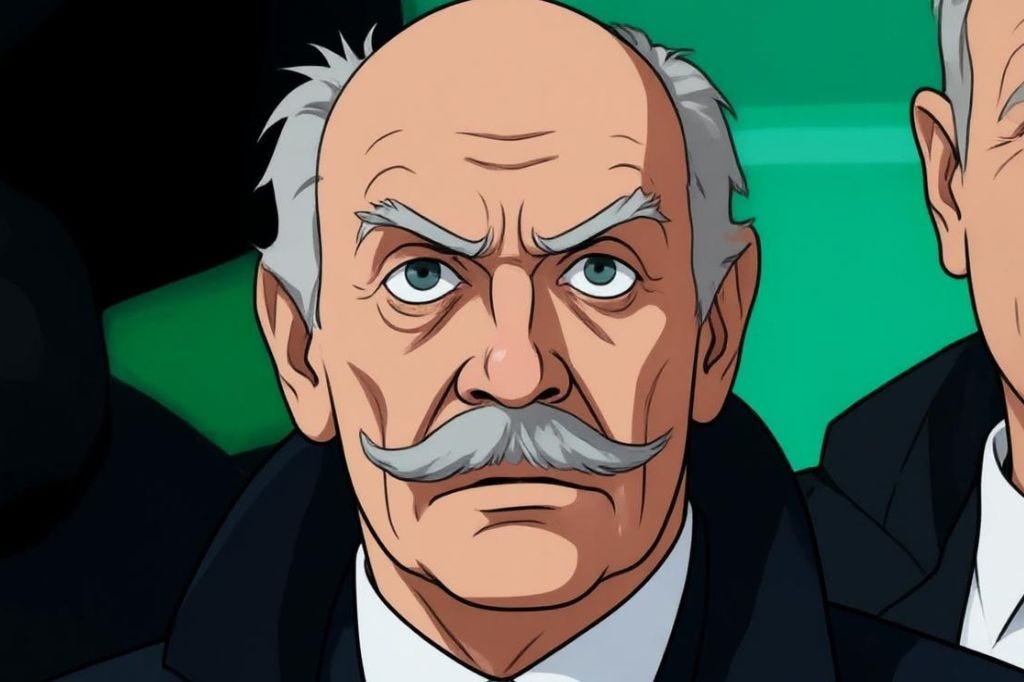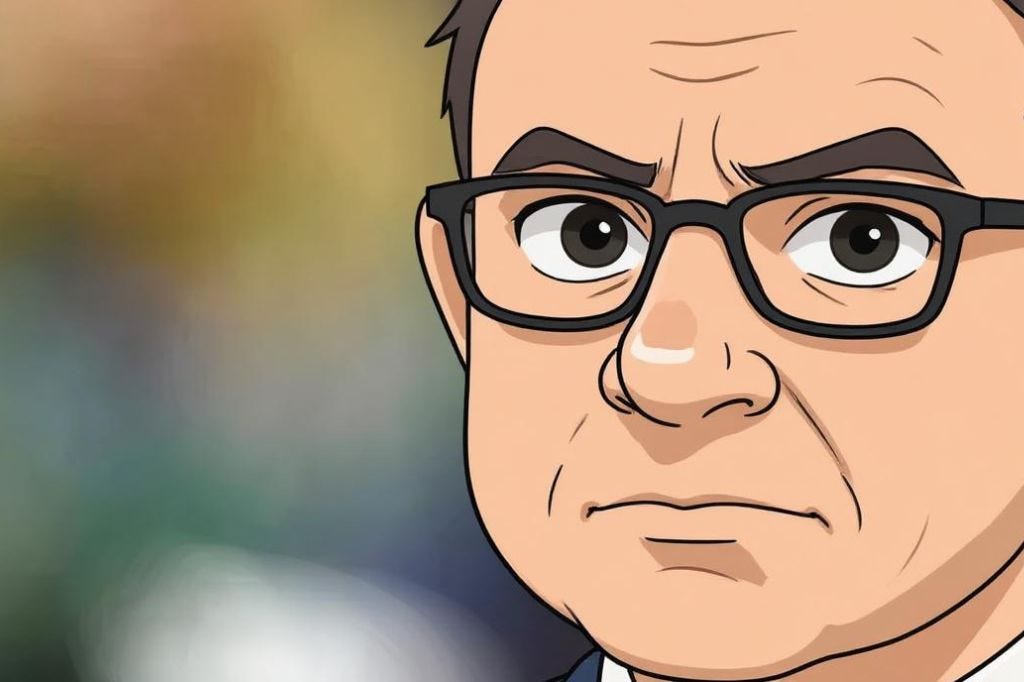Dermot Desmond issues brutal takedown of departing Brendan Rodgers
Majority Shareholder Dermot Desmond accuses Rodgers of misleading fans and fuelling division, as the Northern Irishman quits Celtic following 3-1 defeat to Hearts.
Celtic have announced that manager Brendan Rodgers has sensationally quit the club following defeats to Dundee and Hearts, leaving the reigning Scottish champions trailing eight points behind the Edinburgh club.
In one stunning act, the Brendan Rodgers era at Celtic came to an end - swept away by chaos, public feuding and back-to-back humiliations on the pitch. The walls caved in at Tynecastle, where Hearts dented Celtic’s title ambitions and exposed every crack behind the scenes - setting the stage for Rodgers’ inevitable exit and Dermot Desmond’s pointed attack on Rodgers’ ‘divisive, misleading and self-serving’ conduct. Far from a graceful departure, Rodgers’ resignation brings to light a seething power struggle, a fractured squad and a boardroom determined to make sure the support knows that Rodgers wasn’t a victim in all of this.
A Toxic End to Rodgers’ Second Spell
Rodgers returned to Celtic for a second spell in June 2023 with high expectations following the departure of Ange Postecoglou to Spurs. It was certainly a shock return given how he quit the club in February 2019 - but tonight’s news was less of a shock and more an inevitable ending to what has been a pretty farcical campaign which has spiralled out of control on and off the pitch.
Celtic’s 3-1 defeat to Hearts on Sunday, pretty much summed up the turmoil at the club. Celtic’s lacklustre performances and a rapidly deteriorating league position placed mounting pressure on the Northern Irishman, whose commitment and relationship with the board was already fractured following comments made in the way of the Summer transfer window closing.
The defeat left Celtic eight points behind in the title race, with the prospect of chasing down a rampant Hearts side under Rodgers with little momentum and a broken dressing room nigh on impossible - this triggered an urgent assessment of the manager’s position and in my opinion, whatever our views are on the incompetence of the board - getting rid of Rodgers was the right course of action.
Summer Turmoil and Transfer Failures
Central to Rodgers’ downfall was the chaos of the summer transfer window. Months of reported indecision, muddled priorities, and boardroom friction left Celtic fans angered as unrest followed. Promises of “quality over quantity” went unfulfilled: several potential signings failed to materialise, and those who did arrive never met the profile the manager publicly declared he needed - despite his claims that he signed off on every single signing. This resulted in a squad that has been exposed in league games this season and failure in the Champions League qualifying play-off round - costing the club upwards of £40 million.
Many saw the failure to strengthen key positions - and the manner in which apparent board guarantees were abandoned - as a sign that the club’s footballing priorities were with their bank balance rather than the product on the pitch. This, along with media leaks and public spats between Rodgers and Celtic’s hierarchy, set the stage for a poisonous atmosphere that has ultimately came to a head tonight with his departure and Desmond’s vitriol attack on the man he brought to the club.
The Final Straw: Defeats to Dundee and Hearts
If the transfer window had fuelled fan unrest, then defeats against Dundee and crucially Hearts made Rodgers’ departure inevitable. The loss at Dens Park exposed Celtic’s fragility against lower-table opposition; the subsequent match up in Edinburgh was even more telling. Hearts, transformed under Derek McInnes, outplayed and outworked Celtic in almost every facet of the game.
This dramatic decline on the pitch has forced the club’s hand. While Celtic’s board thanked Rodgers for his contribution in shaping title-winning teams during his two spells, there was a tacit acknowledgement that the situation was untenable and potentially damaging to the club’s long-term prospects.
Dermot Desmond’s Blistering Statement
The news of Rodgers’ departure was followed swiftly by majority shareholder Dermot Desmond issuing one of the most brutal takedowns of a manager in recent memory. In his statement, Desmond pulled no punches regarding Rodgers’ conduct and the consequences of his public comments.
“My deep disappointment at the way the past several months have unfolded is difficult to express. His conduct and communication in recent months have not reflected the trust we placed in him,” Desmond stated, signalling the complete erosion of trust between board and manager.
Desmond went on to clarify, “Both Michael Nicholson and I expressed to Brendan that we were keen to offer him a contract extension. Yet in subsequent press conferences, Brendan implied the club made no commitment to offer him a contract. That was simply untrue.”
He directly addressed the breakdown in relations, “Regrettably, his words and actions since then have been divisive, misleading, and self-serving. They have contributed to a toxic atmosphere around the club and fuelled hostility towards members of the executive team and the Board.”
In perhaps the most damaging accusation, Desmond declared: “Every player signed and every player sold during his tenure was done so with Brendan’s full knowledge, approval, and endorsement. Any insinuation otherwise is absolutely false.”
With the situation at Parkhead approaching crisis point, Desmond’s statement concluded, “What has failed recently was not due to our structure or model, but to one individual’s desire for self-preservation at the expense of others. Celtic is greater than any one person. Our focus now is on restoring harmony, strengthening the squad, and continuing to build a club worthy of its values, traditions, and supporters.”
The Impact on the Squad and Supporters
For the players, Rodgers’ comments to the press about their ability will have surely made a huge impact on their morale - despite the likes of Liam Scales coming out and playing ‘dumb’ in relation to the manager’s analogy of Honda Civics and Ferraris.
Supporters, meanwhile, were confronted with the reality that this season’s title challenge is now going to be a war of attrition between Hearts at the top of the table, Celtic struggling to play catch up and a somewhat rejuvenated Rangers side under new manager Danny Rohl slowly closing the gap on their city rivals.
A New Chapter - But Questions Remain
In the wake of Rodgers’ resignation, Celtic quickly moved to stabilise matters by installing Martin O’Neill as interim manager alongside Shaun Maloney as his assistant. There’s no news yet of John Kennedy and Gavin Strachan, but with Maloney coming on board it looks like Kennedy’s time at the club is at an end as well.
Celtic’s board will be hoping that Celtic legend Martin O’Neill will bring his wealth of experience in the game and his authority to bear to help turn around the fortunes of the club on the field - with a league clash against Falkirk this Wednesday followed swiftly with a League Cup semi final against Rangers at Hampden at the weekend. His appointment will surely be seen as a unifying gesture - offering hope to sceptical fans that the hard steps required to restore the club’s fortunes will soon be underway. While there’s still the fear that Martin O’Neill is merely the face of the new regime and the real puppet master is Shaun Maloney - a man who has failed in every managerial role he has held since retiring from football.
While all eyes will be on Celtic on Wednesday night, the club must quickly find a long-term solution and not fanny about with Rodgers’ permanent replacement as they do with transfers.
Celtic arguably face a steeper challenge than they have faced in recent years - Hearts remain well clear atop the table; Rangers, now resurgent, are breathing down Celtic’s neck. Squad overhaul and a fresh footballing identity will be the priorities for whoever claims the permanent manager’s seat in the coming months.
Rodgers’ Legacy and Celtic’s Path Forward
The circumstances of Brendan Rodgers’ resignation - and the caustic fallout in the boardroom - will be analysed for years. Rodgers’ second tenure will be remembered for its turbulent final chapter rather than its heights, as the breakdown with Dermot Desmond and Celtic’s executive team laid bare the club’s current struggles.
As Celtic looks to regroup, the interim management team must quickly heal any divisions in the dressing room and restore trust in the leadership.
The club hierarchy in the coming months must establish a clearer transfer philosophy - and stick to it. Ensuring that the board and management share football priorities.
And whether this is possible or not the club must do everything in it’s power to repair relations with the fanbase, whose faith in the club’s board has fractured, potentially irreparably.
Dermot Desmond’s words - “Celtic is greater than any one person” - must also serve as a warning to the majority shareholder. That despite his brutal strike on Rodgers, his lack of awareness and accountability is telling with the fans calling for his head along with Peter Lawwell and Michael Nicholson to roll.
The battle to reclaim the Premiership crown may be harder than ever before, but for now, Celtic’s most important fight is internal - mending what was broken under Brendan Rodgers and laying the foundations to turn around the team’s performances on the pitch. Only in overcoming these internal challenges can Celtic move forward and once again become Scottish league champions.
What are your thoughts on Brendan Rodgers’ departure? On the return of Martin O’Neill and Shaun Maloney? And finally on the scathing comments from Dermot Desmond?






